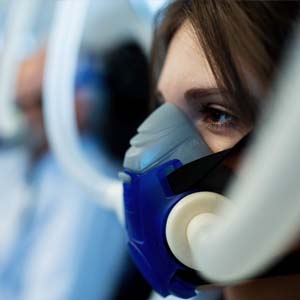Chronic Fatigue Syndrome
Chronic Fatigue Syndrome
Myalgic encephalomyelitis, often known as chronic fatigue syndrome or ME/CFS, is a long-term illness that manifests itself in a variety of ways. Extreme exhaustion is the most common symptom.
Understanding
Chronic Fatigue Syndrome
Chronic fatigue syndrome (CFS) is a condition characterised by extreme weariness or exhaustion that does not go away with rest and is not caused by a medical disease.
Myalgic encephalomyelitis (ME) or systemic exertion intolerance disorder are other names for CFS (SEID).
CFS’s causes aren’t completely understood. Viral infection, psychological stress, or a mix of variables are some of the possibilities.
It is difficult to diagnose CFS because no single cause has been found, and many other disorders generate comparable symptoms.
CFS can’t be diagnosed because there aren’t any tests available. When obtaining a diagnosis, your doctor will need to rule out other possible explanations of your weariness.
Chronic fatigue syndrome was once a contentious diagnosis, but it is now widely recognised as a medical disorder.
CFS can strike anybody, but it is most frequent in women in their forties and fifties. Although there is presently no cure, medication can help to alleviate symptoms.
Here’s everything you need to know about CFS, including symptoms, treatments, and prognosis.
What are the signs and symptoms of
Chronic Fatigue Syndrome (CFS)?

What are the signs and symptoms of Chronic Fatigue Syndrome (CFS)?
CFS symptoms vary depending on the person and the severity of the disorder.
Fatigue that is severe enough to impede with everyday activities is the most prevalent symptom.
A considerably diminished capacity to do your typical daily activities with fatigue must endure for at least 6 months for CFS to be diagnosed. It can’t be treated with bed rest.
You may also feel extremely tired after engaging in physical or mental activities, which is known as post-exertional malaise (PEM). This can linger for up to 24 hours after the activity is completed.
CFS can also cause sleep disturbances, such as:
- feeling unrefreshed after a night’s sleep
- chronic insomnia
- other sleep disorders
You may also encounter the following:
- Memory loss
- Concentration lowered
- Intolerance to orthostatic pressure (going from lying or seated to standing positions makes you light-headed, dizzy, or faint)
CFS can cause physical symptoms such as:
- Muscular ache
- A lot of headaches
- Pain in multiple joints that isn’t accompanied by redness or swelling
- A persistent aching throat
- Lymph nodes in your neck and armpits that are painful and swollen
Some people are affected by CFS in cycles, with times of feeling worse followed by periods of feeling better.
Symptoms may even go away completely in certain cases, a condition known as remission. It’s still conceivable that symptoms will return later, which is known as a relapse.
It can be tough to control your symptoms in this cycle of remission and relapse, but it is achievable.
Diagnosing Chronic Fatigue Syndrome

Diagnosing Chronic Fatigue Syndrome
CFS is a disease that is difficult to diagnose.
According to the National Institute of Health and Care Excellence (NICE), CFS/ME affects ‘at least’ 0.2 percent to 0.4 percent of the UK population, meaning that up to 1 in 250 persons, or 260,000 people, are affected.
There are no medical tests available to diagnose CFS. Its symptoms are similar to those of a variety of different illnesses. Because many persons with CFS don’t “appear unwell,” clinicians may be unaware that they have a health problem.
Your doctor will rule out other possible causes and go over your medical history with you before giving you a CFS diagnosis.
They’ll certify that you have at least the key symptoms listed above. They’ll also inquire about the length and intensity of your unexplained exhaustion.
A crucial component of the diagnosing procedure is ruling out other possible explanations of your fatigue. The following illnesses have symptoms that are similar to CFS:
- Mononucleosis
- Lyme disease
- Multiple sclerosis
- Lupus (SLE)
- Hypothyroidism
- Fibromyalgia
- Depression
- Severe obesity
- Sleep disorders
Certain medicines’ adverse effects, such as antihistamines and alcohol, can also resemble CFS symptoms.
Because the symptoms of CFS and many other disorders are so similar, it’s crucial not to self-diagnose. Discuss your symptoms with your doctor. They can assist you in obtaining relief.
Chronic Fatigue Syndrome
Causes & Risk Factors

Chronic Fatigue Syndrome Causes & Risk Factors
It is unknown what causes CFS. Contributing factors, according to researchers, could include:
- Viruses such as glandular fever
- Infections caused by bacteria, such as pneumonia
- A compromised immune system
- Stress
- Hormonal inconsistencies
It’s also possible that certain people are susceptible to CFS genetically.
Though CFS can occur after a viral illness, no specific infection has been identified as the aetiology of CFS. Some viral infections linked to CFS have been examined, including those caused by:
- Epstein-Barr virus (EBV)
- human herpesvirus 6
- Ross River virus (RRV)
- rubella virus
Bacterial infections, such as Coxiella burnetii and Mycoplasma pneumoniae, have also been investigated in relation to CFS.
CFS may represent the culmination of several distinct illnesses rather than a single one.
In fact, one out of every ten patients infected with EBV, Ross River virus, or Coxiella burnetii will develop a disease that satisfies the CFS diagnostic criteria.
Furthermore, those who have experienced severe symptoms from any of these three diseases are at an increased chance of having CFS later on, according to researchers.
Immune systems in people with CFS are sometimes compromised, but GPs aren’t sure if this is enough to trigger the condition.
Hormone levels in people with CFS might sometimes be abnormal. Doctors haven’t decided whether or whether this is significant.
CFS-related risk factors
CFS is most common in people in their forties and fifties.
Sex also plays a role in CFS, as women are two to four times more likely than males to be diagnosed with the illness.
Other factors that may raise your chances of getting CFS to include:
- Propensity that is caused by genes
- Allergies
- Stress
- Factors in the environment
Treating ME/CFS

Treating ME/CFS
There is no specific cure for CFS at this time.
Because each person’s symptoms are unique, different treatments may be required to manage the illness and alleviate symptoms.
Create the optimal treatment plan for you with the help of your healthcare team. They can discuss the therapy’ potential benefits and adverse effects with you.
Managing the symptoms of post-exercise malaise (PEM)
When even moderate physical, mental, or emotional exertion causes CFS symptoms to worsen, this is known as PEM.
Symptoms worsen 12 to 48 hours after the activity and can linger for days or even weeks.
Activity management, also known as pacing, can help prevent PEM flare-ups by balancing rest and activity. To stay inside your particular boundaries for mental and physical tasks, you’ll need to identify them, schedule them, and then rest.
The “energy envelope” is a term used by certain clinicians to describe staying within these parameters. Keeping a journal of your activities can assist you in determining your personal boundaries.
It’s crucial to remember that, while intensive aerobic activity is beneficial for most chronic diseases, it’s not tolerated by persons with CFS.
Changes in lifestyle and home treatments
Making simple lifestyle modifications could help you feel better.
Insomnia can be alleviated by limiting or eliminating caffeine use. Nicotine and alcohol should also be limited or avoided.
If napping throughout the day is affecting your ability to sleep at night, try to avoid it.
Make a sleep schedule for yourself. Every night, go to bed at the same time and try to wake up at the same time every day.
Medications
No single drug can usually treat all of the symptoms you are suffering. Additionally, when your symptoms vary over time, your medications may need to be adjusted accordingly.
CFS can cause or be a symptom of depression in many people. Low-dose antidepressant therapy or a referral to a mental health professional might be necessary.
If you don’t get a good night’s sleep after making lifestyle modifications, your doctor may prescribe a sleep aid. Aches and joint discomfort caused by CFS can also be managed with pain-relieving medicines.
If medication is required, it must be adjusted to your specific need. Consult your physician frequently. CFS treatment does not come in a one-size-fits-all package.
Alternative medicine
Acupuncture, tai chi, yoga, and massage can all aid with CFS pain relief. Before commencing any alternative or complementary therapy, always discuss it with your GP.
Alternative and Complementary therapies used
when treating CFS patients
Hyperbaric oxygen therapy
Research suggests that Hyperbaric oxygen therapy for Chronic Fatigue Syndrome decreases chronic fatigue syndrome symptoms relieving general fatigue and pain and increases the quality of life of an individual suffering from CFS.
Cryotherapy
Whole-body cryotherapy (WBC) has shown to be beneficial in the treatment and managing Chronic Fatigue Syndrome symptoms provide relief for some patients with ME/CFS.
Ozone therapy
In 2018 the largest study of patients with chronic fatigue syndrome was treated with Ozone therapy. Of the 65 patients with CFS treated, 52 patients (80%) showed a significant improvement in symptomatology. There were no side effects from the ozone therapy.
Red Light Therapy
Infrared Sauna therapy
Chronic fatigue syndrome can be treated with far Infrared sauna therapy by providing a dry hot temperature to raise the body’s temperature to promote the dilation of blood vessels which leads to perspiration through the pores of the skin. This activity releases toxins from the body.
Those that suffer from CFS will experience an improved feeling of well being. Raising the body‘s core temperature kills bacteria and viruses which adds to the overall health benefits of the individual. Perspiration removes heavy metals, toxins, and radioactive particles that can clog the body’s metabolism.
Pressotherapy

Hyperbaric oxygen therapy
Research suggests that Hyperbaric oxygen therapy for Chronic Fatigue Syndrome decreases chronic fatigue syndrome symptoms relieving general fatigue and pain and increases the quality of life of an individual suffering from CFS.

Cryotherapy
Whole-body cryotherapy (WBC) has shown to be beneficial in the treatment and managing Chronic Fatigue Syndrome symptoms provide relief for some patients with ME/CFS.

Ozone therapy
In 2018 the largest study of patients with chronic fatigue syndrome was treated with Ozone therapy. Of the 65 patients with CFS treated, 52 patients (80%) showed a significant improvement in symptomatology. There were no side effects from the ozone therapy.

Red Light Therapy

Infrared Sauna therapy
Chronic fatigue syndrome can be treated with far Infrared sauna therapy by providing a dry hot temperature to raise the body’s temperature to promote the dilation of blood vessels which leads to perspiration through the pores of the skin. This activity releases toxins from the body.
Those that suffer from CFS will experience an improved feeling of well being. Raising the body‘s core temperature kills bacteria and viruses which adds to the overall health benefits of the individual. Perspiration removes heavy metals, toxins, and radioactive particles that can clog the body’s metabolism.

Pressotherapy
Summary

Summary
Despite expanded research efforts, CFS remains a complicated illness with no clear aetiology or cure. Only 5% of people are able to recover. Managing CFS can be difficult as a result.
To adjust to your chronic fatigue, you’ll probably need to make some lifestyle changes. You may experience despair, anxiety, or social isolation as a result. As you make decisions and transition, you might find that joining a support group is beneficial.
Because everyone’s CFS evolves differently, it’s critical to consult with your doctor to develop a treatment plan that suits your specific needs.
Working with a group of healthcare specialists is beneficial to many people. Doctors, therapists, and rehabilitation specialists are examples.
Chronic fatigue syndrome treatments
If you would like to find out more about our chronic fatigue syndrome treatments, please fill out the form below.










